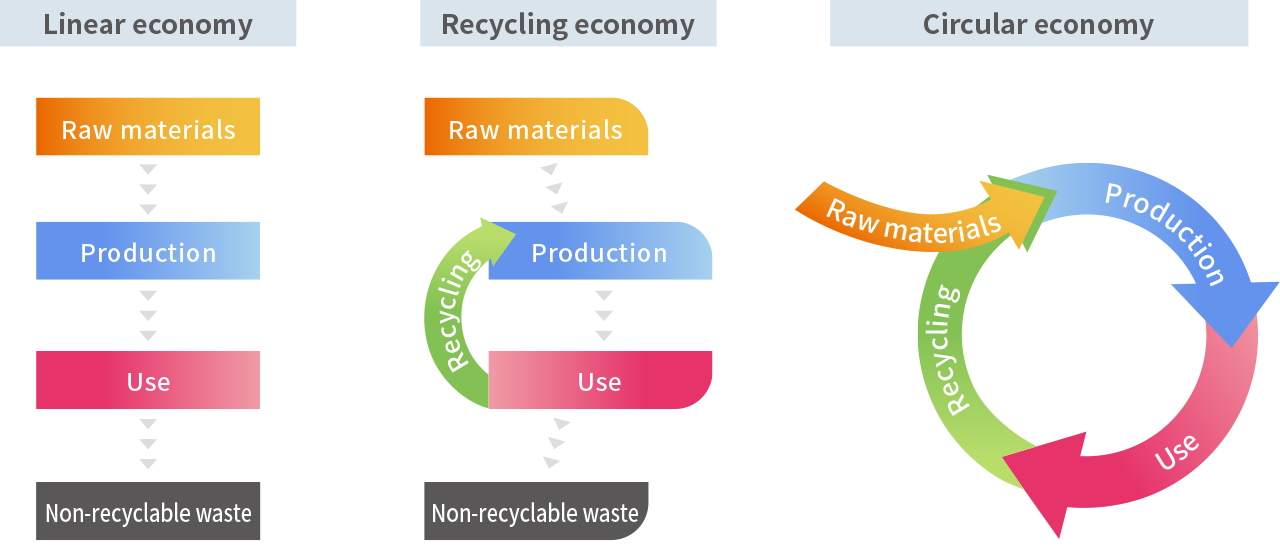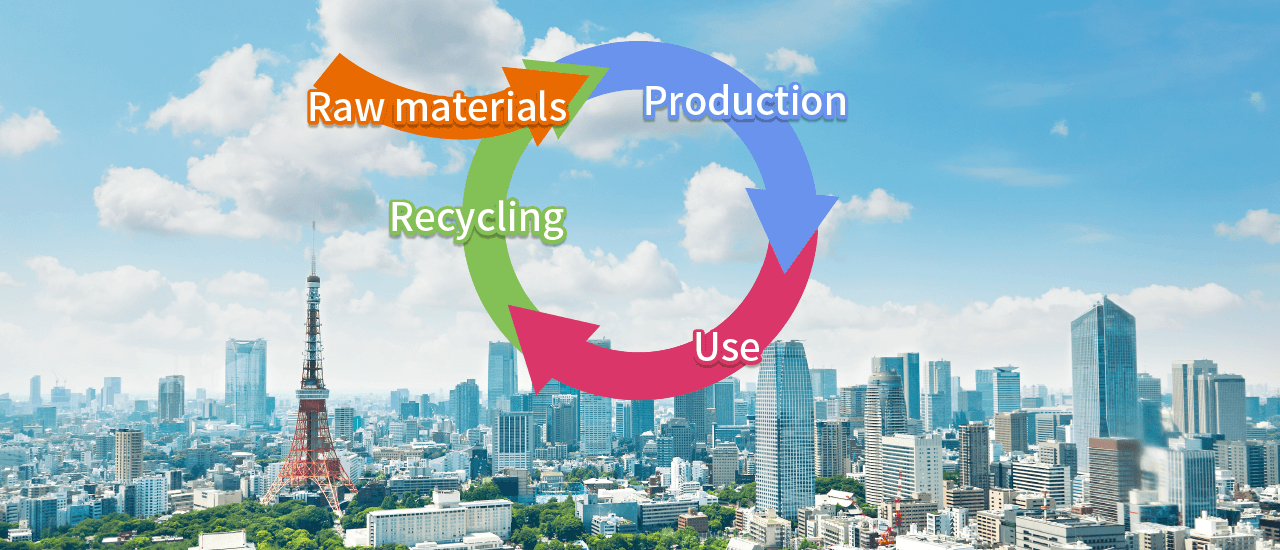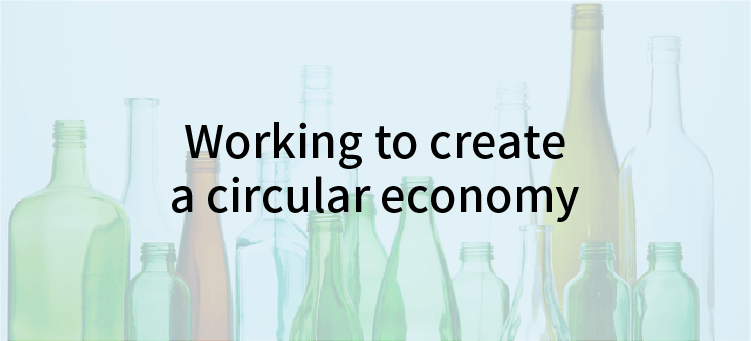Shifting to a circular economy requires action from everyone
More and more people, countries and regions around the world are focusing on the shift to a decarbonized society through a circular economy that aims to eliminate waste by circulating plastics and all other resources. But creating a circular economy will not be possible unless everyone changes their respective behavior – designers, manufacturers and providers of products, consumers and recyclers. This will require Tokyo residents, businesses and municipalities in Tokyo acting together to achieve this goal.
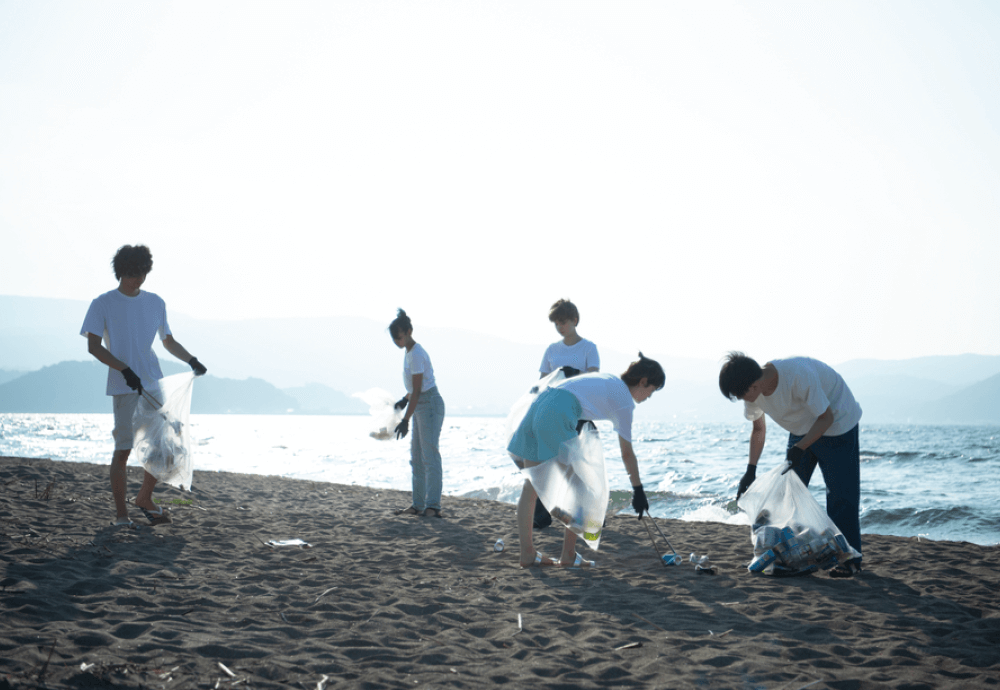
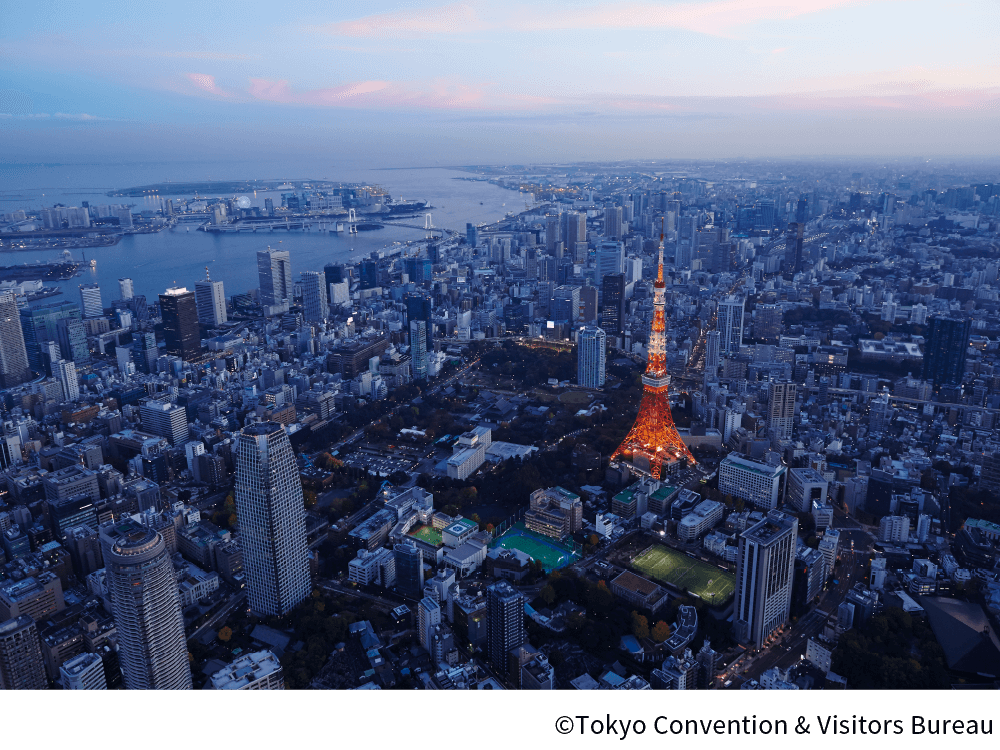
Resource circulation is all the more essential
for a sustainable future
In keeping with the global goal of carbon neutrality or net-zero carbon emissions by 2050, the Tokyo Metropolitan Government has declared its commitment to achieve a Zero Emission Tokyo and has developed its strategies that details specific policies and actions. As part of these strategies, Tokyo is stepping up its commitment toward resource circulation, which includes reducing plastics and food loss and waste, and other initiatives that help cut carbon emissions.
What we can do to support people
to implement actions
Tokyo Environmental Public Service Corporation established the Tokyo Circular Economy Promotion Center to launch new programs that aim to create a circular economy in collaboration with Tokyo residents, businesses, municipalities and various organizations.
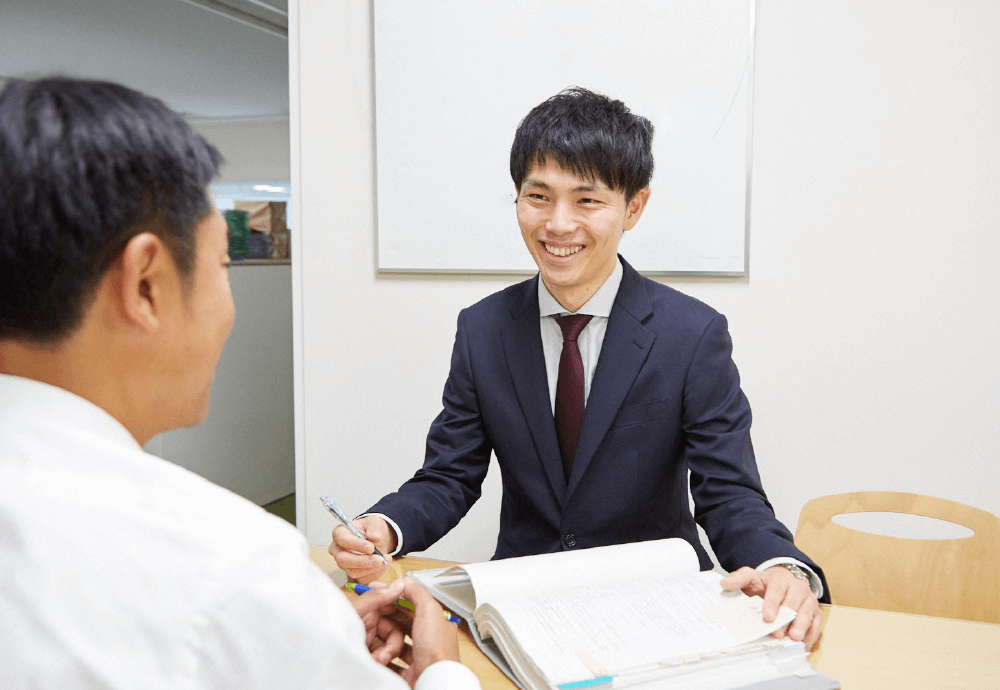

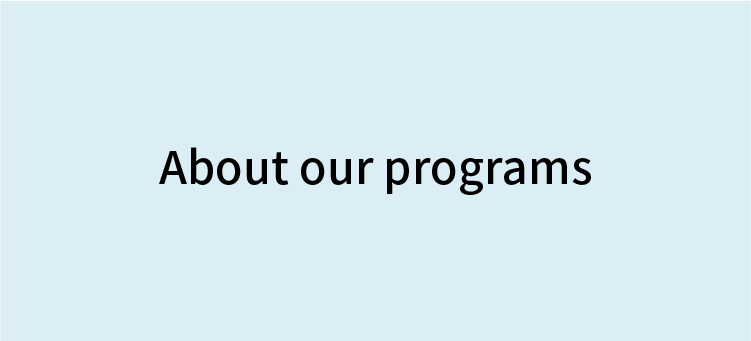

Consultation and matching program
to provide setup support
The Tokyo Circular Economy Promotion Center supports businesses, municipalities and various organizations in Tokyo that are working to set up initiatives toward a circular economy. This program offers a complete range of support – giving advice on reducing single-use plastics, food loss and waste, recommending subsidy programs by the Tokyo Metropolitan Government, and providing business matching service.
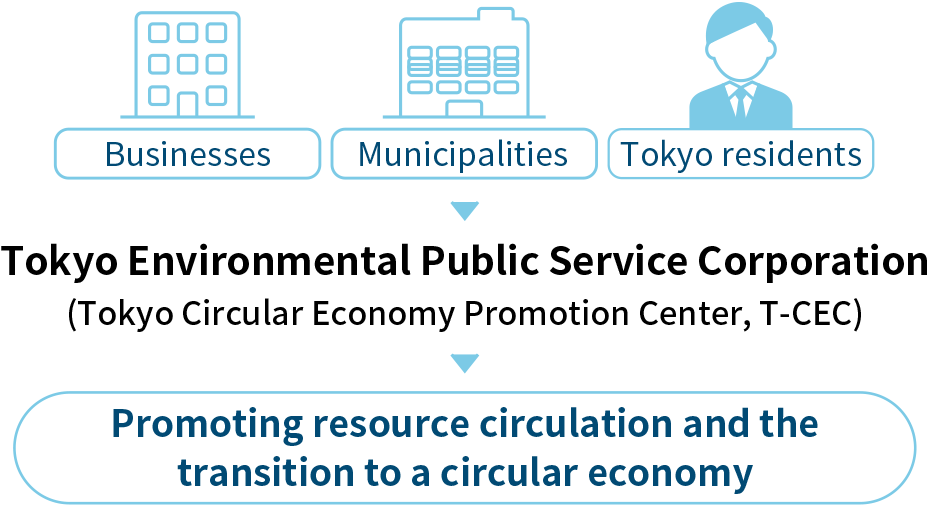
*We also provide consultation services to foreign nationals, provided they can discuss their operations in Japanese.
Model projects working to create
a circular economy
Tokyo Circular Economy Promotion Center provides aid to model projects by companies and business groups in creating test projects, developing frameworks and building systems related to resource circulation, with the goal of creating a community-based circular economy
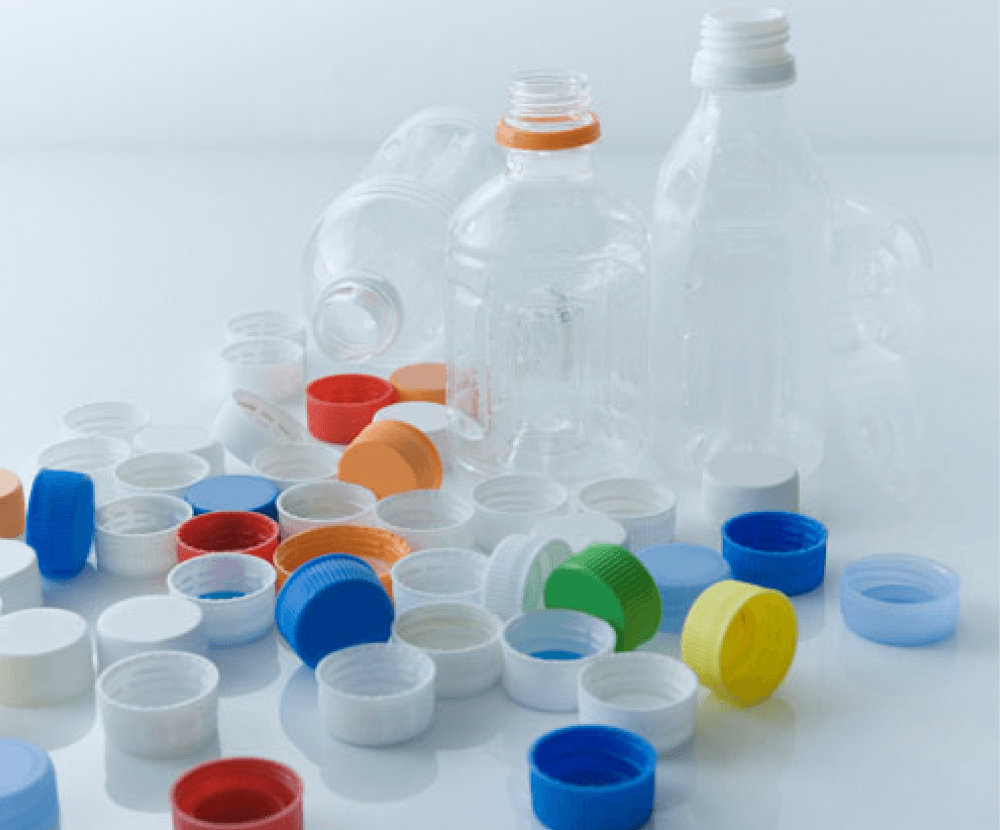
What is a circular economy?
Difference from a linear economy and a recycling economy
A linear economy is characterized by economic activities that move in one direction, from getting materials to manufacturing products, then to using and disposing of these products after use. Staying with a linear economy leads to environmental problems, including resource depletion and critical landfill shortages due to soaring amounts of waste.
To address such environmental issues, Japan has worked on curbing the generation of waste and reusing or recycling products through the 3Rs (reduce, reuse, recycle). While a recycling economy based on the 3Rs work to first reduce or reuse to stop producing waste, a considerable amount of waste is still produced.
Adding to the conventional 3Rs, a circular economy is characterized by economic activities that limit the amount of resource input and consumption, effectively use existing stock and create added value by creating new services. Starting from the design stage of products, the circular economy concept aims to design out waste and pollution by using highly recyclable materials for long product life, minimizing raw material use and making the most of existing products and resources.
